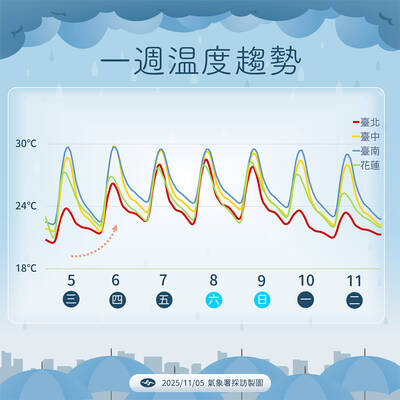Two retired military officers were indicted yesterday for allegedly helping China develop an espionage network in Taiwan.
Chien Ching-kuo (錢經國), who retired from the navy in 2009, and Lu Chun-chun (盧俊均), who served at the Missile Command Center until 2005, were charged with violating the National Security Act (國家安全法) and Anti-Corruption Act (貪污治罪條例).
The Kaohsiung District Prosecutors’ Office said in the indictment that after retiring, Lu began a business career in China, where he reportedly made friends with government officials in Xiamen before being recruited by Chinese intelligence.
In May 2009, Lu invited Chien on an all-expenses-paid trip to Bali, Indonesia, where Chien met with Chinese intelligence personnel, the indictment said.
Chinese intelligence allegedly asked Chien about the situation in Taiwan’s military and paid 1,000 Chinese yuan to 2,000 Chinese yuan (US$164 to US$328 at current exchange rates).
Following their return home, Lu and Chien invited Chang Chih-hsin (張祉鑫), then-chief officer of political warfare at the Naval Meteorology and Oceanography Office, and his wife on a trip to Cebu, Philippines, the indictment said, adding that Chang later agreed to help active-duty officers gather intelligence for China and arrange for overseas trips for them.
He is suspected of having received US$2,000 as a reward during the Cebu trip.
Chang retired last year and he is facing espionage charges in a case before the Taiwan High Court’s Kaohsiung Branch.
Chien is also accused of inviting a Ministry of National Defense division head, identified only by his surname Hsu (徐), to dine at a Taipei restaurant in September 2011 and trying to convince him to spy for China.
Hsu, a one-star general, rejected the offer, but his wife and her sister later accepted a trip to Xiamen from Chien, the indictment said. The Kaohsiung High Prosecutors’ Office is looking into that case.

UNILATERAL MOVES: Officials have raised concerns that Beijing could try to exert economic control over Kinmen in a key development plan next year The Civil Aviation Administration (CAA) yesterday said that China has so far failed to provide any information about a new airport expected to open next year that is less than 10km from a Taiwanese airport, raising flight safety concerns. Xiamen Xiangan International Airport is only about 3km at its closest point from the islands in Kinmen County — the scene of on-off fighting during the Cold War — and construction work can be seen and heard clearly from the Taiwan side. In a written statement sent to Reuters, the CAA said that airports close to each other need detailed advanced

Tropical Storm Fung-Wong would likely strengthen into a typhoon later today as it continues moving westward across the Pacific before heading in Taiwan’s direction next week, the Central Weather Administration (CWA) said. As of 8am, Fung-Wong was about 2,190km east-southeast of Cape Oluanpi (鵝鑾鼻), Taiwan’s southernmost point, moving westward at 25kph and possibly accelerating to 31kph, CWA data showed. The tropical storm is currently over waters east of the Philippines and still far from Taiwan, CWA forecaster Tseng Chao-cheng (曾昭誠) said, adding that it could likely strengthen into a typhoon later in the day. It is forecast to reach the South China Sea

WEATHER Typhoon forming: CWA A tropical depression is expected to form into a typhoon as early as today, the Central Weather Administration (CWA) said yesterday, adding that the storm’s path remains uncertain. Before the weekend, it would move toward the Philippines, the agency said. Some time around Monday next week, it might reach a turning point, either veering north toward waters east of Taiwan or continuing westward across the Philippines, the CWA said. Meanwhile, the eye of Typhoon Kalmaegi was 1,310km south-southeast of Oluanpi (鵝鑾鼻), Taiwan’s southernmost point, as of 2am yesterday, it said. The storm is forecast to move through central

UNKNOWN TRAJECTORY: The storm could move in four possible directions, with the fourth option considered the most threatening to Taiwan, meteorologist Lin De-en said A soon-to-be-formed tropical storm east of the Philippines could begin affecting Taiwan on Wednesday next week, the Central Weather Administration (CWA) said yesterday. The storm, to be named Fung-wong (鳳凰), is forecast to approach Taiwan on Tuesday next week and could begin affecting the weather in Taiwan on Wednesday, CWA forecaster Huang En-hung (黃恩鴻) said, adding that its impact might be amplified by the combined effect with the northeast monsoon. As of 2pm yesterday, the system’s center was 2,800km southeast of Oluanbi (鵝鑾鼻). It was moving northwest at 18kph. Meteorologist Lin De-en (林得恩) on Facebook yesterday wrote that the would-be storm is surrounded by